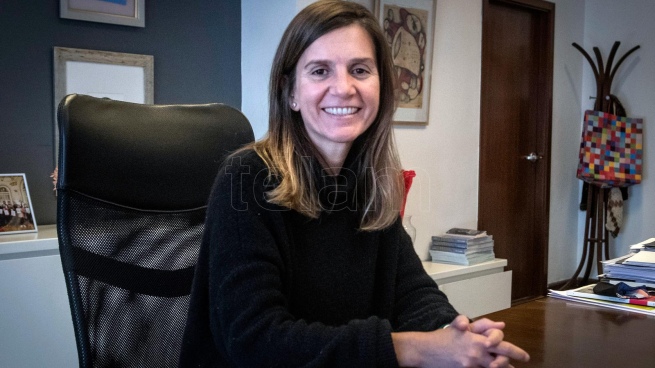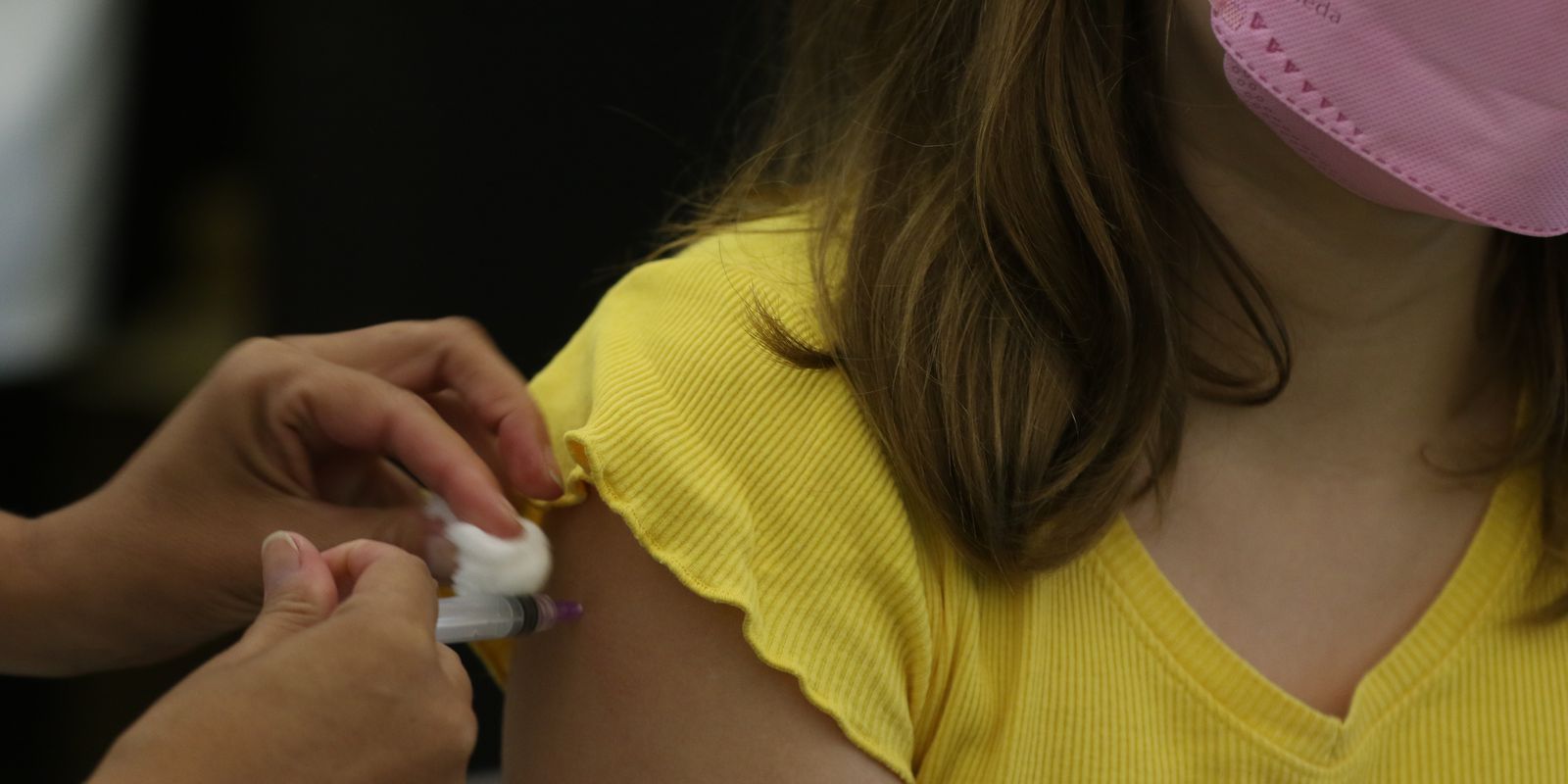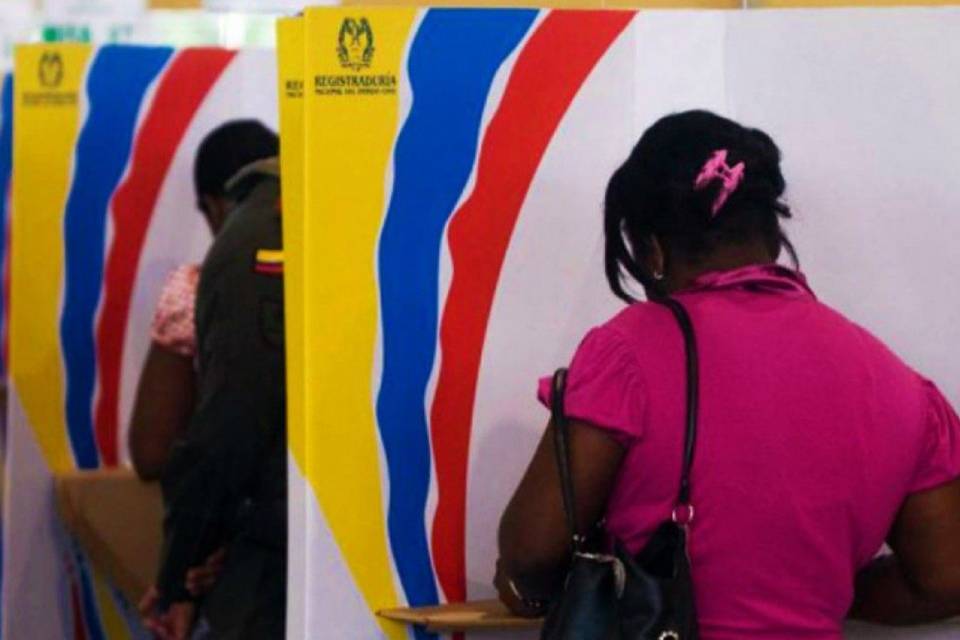The executive director of Anses, Fernanda Raverta, highlighted the importance of approving a law that resolves the situation of 9 out of 10 women and 7 out of 10 men who will reach retirement age without having the necessary 30 years of contribution can retire.
Two years after the beginning of his administration and interviewed by Télam, Raverta evaluated the measures adopted, celebrated the project of senators from the Front of All to create a new moratorium with contributions not made until 2008 and ruled out that this proposal collides with the agreement with the IMF.
– Télam: What is the evaluation of these two years of management?
– Fernanda Raverta: They were two years of hard work and management in an organization that, for us, is the heart of the national State. We took over in the midst of the first wave of contagion from the pandemic, with the difficulties that this health emergency had. But we had two clear objectives: to recover lost time in terms of institutional intelligence and attention, and to recover the purchasing power of the income generated from Anses benefits.
We inaugurated 40 new offices, we put the offices in infrastructure conditions and we trained all our workers, who took exams to be equal in terms of training.
With Decree No. 840, signed by the president (Alberto Fernández) in October 2020, we incorporated 970,000 children into the Universal Child Allowance; and, based on the Decree that implemented the possibility of having years of contributions for care tasks for each son for each daughter, we achieved that more than 150,000 women could access a retirement pension, even when they did not reach the years that they could pay with moratoriums .
In terms of purchasing power it is a slightly longer path.
Private banks should have alternative forms to life faith
Raverta indicated that from his office they will maintain the request to private banks not to require proof of life from those who receive retirement and pensions, as Banco Nación, Banco Provincia, Córdoba and La Pampa already do.
“We have the responsibility to inform retired men and women, that they are the one who chooses the mouth of payments, which are the banks that have life faith and which banks do not. That is, that they can choose banks that require them to have to go to say ‘hello, how am I alive'”, Raverta explained to Télam.
He insisted that the banks that adapted to Anses’s recommendation not to ask retirees for proof of life “was because they have a way to solve it.”
“It does not occur to me that a bank gives a loan to a person who is not alive. When the bank has to put money and give and grant a loan, it knows who is alive and who is not. Well, let them do the same with Argentine retirees and retirees,” demanded the head of Anses.
Last March it was once again mandatory to certify life to collect pensions or retirements, except in the Nación, Provincia, Córdoba and Banco de La Pampa banks, which automatically cross the records of the National Registry of Persons (Renaper) with their databases to verify survival.
Although he said that “there must be some type of risk for the banks that believe that the information may not be as up-to-date,” he assured that “if they have a problem in a few days, let it be a risk that the bank assumes and not a burden for the retiree.
The procedure to change the collection bank is very simple and without prior appointment, approaching an Anses office and requesting the change of payment mouth.
Another of the procedures that Anses seeks to simplify is the start of the retirement process, which, since May, is without prior appointment for the 60th or 65th birthday of the woman or man, respectively, who reaches that age.
“The day you reach retirement age, you go to the office with your document and you retire. The idea is to return to being an organization without any type of intermediary in which starting the retirement process is easy, free and you need nothing, not even turn”.
– T: What has been done so far in this regard?
– FR: We have been recovering the purchasing power of retirement and pensions on a quarterly basis. Last year we managed to beat inflation and recovered part of the 20 points (percentage) of purchasing power lost during the previous government. In the case of family allowances, family salary and Universal Child Allowance, by including the Alimentar card and the supplement to buy milk from the 1,000 Days Law, we managed to recover all the lost purchasing power.
With family wages -the family allowances of workers in a dependency relationship-, we made it so that no child in Argentina receives less than 10,126 pesos if their parents are workers in section 1 (low-income workers).
We think we have to keep trying. We still lack and we work every day to improve the income of Argentines who depend on Social Security
– T: A few weeks ago, a bill for a new moratorium was presented in the National Senate. What is the vision that Anses has in this regard?
– FR: Not only do we celebrate (the initiative), but the discussion that is taking place in Congress is very important. Today there is a law in force that allows people who do not reach 30 years of contributions to retire, and that expires in two and a half months (Law No. 26,970, of 2014, which allows regularizing contribution periods until December 2003 , expires next July). Therefore, there has to be a law that solves this problem of Argentines who are not going to be able to access a retirement pension.
For Anses it is absolutely imperative that Argentines continue to have the possibility of retiring. We are talking about the fact that 9 out of 10 women and 7 out of 10 men, who will not have the 30 years of contribution to be able to access retirement.
We have a history in access to retirement in Argentina. From a law sanctioned in 2005 and another in 2014, Argentines were able to take charge of paying through a moratorium for the years they had not contributed.
– T: Is there no conflict between this proposal and the framework of the program agreed with the IMF?
– FR: This project, which we have evaluated and studied with our team from the organization, is very interesting since it proposes something new: that those Argentine men and women who are still economically active population and who know what year or month they have not contributed within the until the year 2008, they can start a payment plan and advance those debts before they reach retirement age.
The IMF does not have any type of restriction on debt payment plans, so we would not have any problem. The pension debt payment plan sets a date until 2008 to pay for years that were not contributed, the fault of your employers who did not make your contributions or that you did not have a job.
– T: How important is it that pension reforms have not been included in the program with the IMF?
– FR: It is very important, and there is no possibility that the formula approved in December 2020 will be modified. Not only because we beat inflation, but because it was shown that it is much better than the previous government’s. All the updates won by between 3 and 5 points (percentage) to the formula approved in the government of Mauricio Macri.
This formula, which was already in force in Argentina in the government of Cristina Fernández de Kirchner, who is now vice president but at that time was president, managed to increase pensions by 27% and now they are updated quarterly.
There is no risk that the pension system is in crisis as it was with the previous formula because we have a new law approved and voted in the National Congress that regulates Argentine pensions.
Claims for Income Reinforcement, until the end of May
Next week the first of the Income Reinforcement installments for informal workers, monotributists of lower categories and workers in private homes will end, although Anses will keep the claim instance open until the end of May for rejected people who, they consider, there were errors in the cross-linking of socioeconomic data.
In total there will be almost 7.5 million adults from all over the country who will receive $18,000 -in two installments, in May and June- by Anses in their bank accounts, as a policy of the national government to compensate for the rise in prices. of food and basic necessities in recent months.
“The idea was to reach those who needed it most and put money in the pockets of the Argentines who have the least in economic terms,” explained the head of Anses, Fernanda Raverta.
In any case, Anses is already evaluating more than 42,000 claims from people who approached its offices to request inclusion in the program.
“Until the end of the month we are receiving complaints in the offices in person. If we had any problem in the crossing of information with an agency, it can be settled with a new evaluation of the situation,” he assured.
An example could be the case of a person who had been withdrawn from a prepaid medical coverage -exclusive condition to receive the Reinforcement-, who has the withdrawal stub but that coverage was still valid in the Superintendence of Health.
Unlike what was the registration to the IFE, the Income Booster counted all the Anses offices open every day -even Saturdays- to reach those people who preferred to go in person, although almost 98% of the almost 12 million people who sought to register did so through the web.
“The first day 5 million people signed up and at no time did the page go down. We implemented a virtual queue that, at its peak, reached a maximum of 1.6 million people and at that time the wait was only half an hour. That is why we celebrate the operation of the Anses page. It was an absolutely successful process in terms of institutional intelligence,” he said.
The reasons for denying the Reinforcement included the registration of workers in a dependency relationship, retirees and pensioners who registered thinking that they were writing to their bonus, those under 18 years of age and people with consumption on debit or credit cards older than two minimum wages, among other socioeconomic criteria.
The schedule of payment of the first installment of $ 9,000 for workers will continue this Monday, May 30 with the beneficiaries with ID completed in 6; on Tuesday 31 with the DNI ending in 7; on Wednesday, June 1 with those finished in 8; and Thursday June 2 with those finished in 9.










